- Home
- Belva Plain
Legacy of Silence Page 2
Legacy of Silence Read online
Page 2
Our ancestors, Caroline thought in the silence. God alone knows how long Father’s people have been in what is now Germany; from prehistoric times, most likely. And Mama’s have been in Europe for how many centuries? Before 1492 they were in Spain, perhaps since the destruction of the temple in 70.
“Maybe you should leave now, Lore,” Father said thoughtfully. “Why should you be stuck here with us if we can’t get out?”
“No, you’re my family and I go where you do. Right now, I’m going to bed. I’m on duty early tomorrow.”
“God bless her,” said Mama, when Lore went upstairs. “She’s a princess, a saint.”
It was true. Lore was Caroline’s older sister and her best friend.
“Poor soul,” said Father. “That nose of hers is her main enemy. Well, other things besides. If she ever stops living with us, I’m afraid she will live alone for the rest of her days. Men are such fools.… Play something, Eva. Play some Bach. He is hopeful and filled with faith.”
Long after Caroline had gone to her room, the piano sounded faintly from below. Because it was routine, it was reassuring. Peter’s warm little body pressed against her feet was also reassuring.
Then her thoughts traveled back to the meeting in the park. She felt vaguely troubled. Had she been curt when he asked her whether they would meet again tomorrow? Or if not curt, exactly, perhaps just dismissive? Or cool? A teacher had once remarked, kindly enough, that she should stop analyzing herself. Perhaps, he said, she had been very strictly brought up, with heavy emphasis upon manners, and so she had a fear of giving offense.
Yes, carried too far, that business could become ridiculous. You spent a few minutes with a total stranger, and now you are worried that you hurt his feelings. You will probably never see him again. And if you do, what difference would it make? He walks his dog, you walk yours, and that’s the end of it.
Yet she knew she would see him again.
He was standing across the avenue from her house the next afternoon, and it was obvious that he had been waiting for her. Indeed, he told her that he had.
“I would like to know you,” he said.
“Well, I walk here every day, unless it should be raining too hard.”
“That’s not what I meant. I would like to go somewhere with you, to a concert or to the opera, since you said you like music.”
Had she said so? She did not recall. Although they had begun to walk side by side and she was not looking at him, she felt that he had turned toward her with expectation.
“Your neighbors, the Cassells at the end of your street, are friends of my family. You can ask them about me.”
“Oh, no, I don’t need to. I can tell for myself, I—”
“Can you?” There was a slight amusement in his tone, and as she looked up at him, a slight, appealing twinkle in his eyes. “From the first minute yesterday, I was sure we would get along. That happens sometimes, you know, not only in fairy tales.”
“Yes, I know.” She hesitated, and then, diving into cold, unfriendly waters, said directly, “You shouldn’t even be talking to me. I’m half Jewish.”
For a moment as she watched, he stood still, regarding her. Then he said quietly, “It doesn’t matter.”
Even though she had not known what to expect from him, the stillness, as though he was disappointed, and also the words, were startling.
“I don’t understand,” she said. “How can it not matter, the way things are?”
“It is only a complication. One finds one’s way around complications. That’s all there is to it.”
Their eyes were looking into each others. In his, she saw a sympathy that would have made her cry if she had given way to it. There was so little kindness these days.
And she said gently, “I wouldn’t want you to have any trouble because of me.”
For an answer, he took her hand, saying only, “Let’s walk.”
Already, they were behaving as if there was going to be a connection. Neither spoke. They arrived at a place where the path sloped toward a small lake on a wide sward, where in fine weather people walked and children played ball games. There were benches. To one of these he drew her, and they sat while the dogs lay down willingly at their feet, as if they, too, sensed the mood of the day.
Unlike the day before, there was no sun, and it was very cold. Bitter November had finally settled itself upon the world. All was quiet. In the windless air, the topmost elm twigs made a delicate black pattern against the pale gray sky.
“Look. Like a Japanese print, or calligraphy,” Walter said, pointing upward.
He was still holding her hand, and she was still holding back tears. Why? What was happening?
From the lowest branches of the trees, there sounded a sweet twittering of birds, little winter creatures with dark heads.
“Hunting berries, going their cheerful way as usual, in spite of everything,” he said. “Yes, nature. Nature and art. Nothing else lasts, so in the long run, nothing else matters.”
“Nothing matters? How can you say that?”
“In the long run, I said.” Letting go of her hand, he faced her to ask abruptly, “What are you going to do in the short run?”
“My family, you mean?” She had not needed to be warned against putting trust in strangers. Yet this time, she did just that. “We are trying to emigrate to America. But we are very late, and you need to have people over there who will support you so you will not be a public charge. My mother has gotten hold of some New York City and Chicago telephone books. People are all passing them around. She writes to people with names like those in her family, although we have no relatives abroad. Perhaps generations ago they were relatives. Who knows? But perhaps they will have a heart anyway.”
He shook his head. “It’s all insane. Insane and evil. This whole country—”
“It’s dangerous to talk that way.”
“I know that. I don’t usually talk that way.”
“Except at home? One has to talk someplace.”
Again he shook his head. “Never at home.”
For a few moments he was silent. Three lines were drawn across his forehead. She wondered, and had never noticed, whether other people as young as he was ever had such marked lines. When he spoke again, it was with sadness.
“We don’t argue. I respect my father. Besides, he is a man with whom people never argue. This has troubled our relationship because I can’t speak openly. Still, he must know how I feel about affairs here. It is often what one does not say that expresses things as clearly as what one does say.”
Then, brightening as if with an effort, he changed the subject. “Well, Caroline, since we find ourselves in rather special circumstances, where are we going to meet from now on? It can’t be always in the middle of the park, especially because”—and he held out his hand—“it has started to rain.”
“We will go back to my house,” she said.
AND SO, Caroline’s life reached a divide: There was before Walter and then there was after Walter.
Lore, who had been at home that first afternoon, was intensely curious. “You go for a walk in the park and look what you bring back! His manners, his looks. Real elegance. But tell me, does he know—know about—”
“About Mama? Of course. He doesn’t care. He’s a cultured, intelligent man. What do you think, that he’s some kind of Brownshirt thug?”
Lore teased, “Look at you, defending him already. Have you fallen in love so fast?”
“What’s wrong with you? I have not fallen in love, Lore.”
“Maybe not yet, but I’m sure you will. It’s only natural. And they say it’s wonderful,” she added wistfully. “Still, in these times, you have to wonder.”
There was great confusion within Caroline, a dread of appearing foolish, as if her thoughts could be visible to other people. She embarrassed herself with the thoughts that were taking shape in her head.
When the week passed and there were no more daily walks in the park, Walter be
gan the evening visits that introduced him to the family.
“A fine young man,” her father said cordially. But after the first two or three times, he expressed his doubts. “I don’t have to tell you that we are living on the thin edge. Walter should be more careful, too. I’m surprised that he comes here at all.”
Mama says nothing, thought Caroline, because she feels such a weight upon her. A heritage that she had always been proud to hand on had now, in this mad time, become a danger to her daughter. Her husband had lost his career and was leaving his country for her sake.
“What do you know about his family?” Father asked, meaning: What is their work and do they belong to the Party? “No, of course they can’t, or else he wouldn’t—” he said, thinking aloud, and then stopped, resuming a moment later. “Anyway, we shall be leaving soon. And you are so—”
So young, he meant. Father’s little girl. He had developed this new habit of spilling half a thought into a broken sentence. And Caroline remembered how he had used to be, positive and sanguine, a doctor, a father who knew all the answers to whatever you needed to know.
One day she took Peter for his walk in the direction of Christina’s house. As little girls up to the age of twelve, they had gone to school together. After that, when Caroline changed to a school run by Jewish teachers, they had, in memory of that first childhood intimacy, kept hold of a tenuous friendship. Nostalgia now drove her simply to walk past the house without having any intention of going in.
It happened that Christina was coming along the street from the opposite direction, and glad to see each other they rushed to meet. Yet after the first few greetings, each felt some constraint. Christina was a university student. She was going to Italy over the holidays. There was little else to say, and they were about to part when a long black official-seeming car with a chauffeur stopped at the next house.
Christina grimaced. “Litzhauser. Ball bearings. With a swastika on his lapel. Big Party man,” she said contemptuously. “My parents detest him, although I don’t have to tell you, he’ll never know it.”
Caroline understood: Christina’s people had always been religious Christians. Also, she understood that Christina would not have dared to talk like that to any of her current friends. Caroline had an impulsive wish to trust and confide, to ask about Walter, to ask anything. But, almost instantly thinking better of it, she did not, and watched with a hidden shudder as Walter’s father, bulky, important, and with his close-shaven head a caricature of his kind, walked into his house.
So she embraced Christina and went home with foreboding like a chill all through her body.
To tell or not to tell. This was too crucially important to keep secret. On the other hand, once her parents knew, it would be the end of Walter. And there was no other place for them to meet besides her house, which in itself wasn’t wonderful; her parents sat and sat, as if he had come to visit them. When finally they did go upstairs, it was almost time for him to leave, anyway.
At dinner that night, very casually, her father inquired, “Is Walter coming again this evening?”
Her reply was equally casual.
“I don’t know. He might just drop in.”
“He has been here five times in the last two weeks,” Mama said.
Lore winked at Caroline. Take it easy, her wink meant.
“We only mean,” Father said, “that you shouldn’t be getting any ideas. I certainly don’t have to give you reasons why.”
“Goodness, he’s only a friend. We talk, and it’s fun. And I don’t have—”
Father interrupted. “You don’t have any fun, and young people should have it. We know that all too well. That’s why the sooner we get away, the better. God knows we’re trying,” he finished wearily.
There had been no replies from the United States to any of the appeals that they had been sending, the so-careful letters that, because of censorship, dared not reveal the fear, the terrible urgency, and the terrible truth.
“It’s almost like putting a message in a bottle and floating it out to sea,” Mama said.
But Father, true to his nature, reminded them that other people had received answers and had even been taken into American homes by total strangers.
“It happens, although I admit it’s asking an awful lot and there can’t be too many people in the world who will do it. Still, I have a feeling we’ll be lucky.”
“What shall we do for money?” asked Mama. “They’ve frozen everything. Frozen. Stolen is more like it.”
“We can raise some when we sell the furnishings, and buy some jewelry to hide. We’ll see. We’ll work it out somehow.”
But Mama had no faith. Sometimes, whenever she was not doing some chore around the house, and constant reader that she was, she would sit with a book; but it was only to put it down on her lap and stare into space. After a while she would rise abruptly and go to the piano, filling the rooms with waves, a tumbling ocean of music.
“Poor Eva. She drowns her sorrows in it,” said Lore, who saw through everyone.
Walter arrived one evening while Eva was still playing. “I stood at the front door until you finished the sonata before I rang the bell,” he explained. “It was too beautiful to be interrupted.”
“You shouldn’t have done that, standing in the cold,” Eva said. But she was pleased.
“Am I interrupting anything else?” he asked. For the little group looked as if it had gathered for a purpose.
“Not at all,” Mama assured him. “We were only having our usual discussion about emigration, and as always, since we were getting nowhere, I decided to make some music. Come, Arthur, we’ve some things to look at upstairs.”
At last they are taking some pity on me, thought Caroline. For once I can talk to him without them.
Yet suddenly now, alone with Walter, she could not think how to begin. She was too aware of him and of the way he examined her, making her wonder whether her hair and her dress were right, making her awkward.
“There’s a beautiful feeling in this house,” he said, “with the pictures and the books lying around, books that people actually read. It’s almost a religious atmosphere.”
“Religious? No. My parents have never declared themselves one way or the other.”
“I meant it in a different sense, in a truer sense that belongs to all religions. The way your father talks about his work, his calling. And your mother’s music. She plays with her whole soul. I think she must be a very gentle woman. Am I right?”
“Yes. But she can be lively, too, and very funny. Not lately, though. Not for a long time.”
“Affidavits and visas. A frustrating business. I understand.”
“We don’t know what’s going to happen.”
“They mustn’t wait if they can help it.” Walter spoke soberly. “People are talking, not too loud, of course, about war by next summer. After Austria and the Sudetenland, anything’s possible.”
“I know.”
“I shall miss you,” he said.
There was an ache in her throat. An ache and a yearning for things lost, as if the future had already happened, as if she had already lived through the coming together, the joining, and the parting. Then she said a thing that she had not intended to say.
“I saw your father going into your house.”
An instant later she had no idea why she had told him. To what purpose had it been? Perhaps because all things must be truthful and clean between them?
She saw that he was startled, even alarmed. “When was that?”
“A while ago. He came home in a car.”
“A government car?”
“I thought it was.”
“So now you know.”
She was looking at the lines on his forehead, the three painful lines above the level brows and the kind, beautiful, translucent eyes.
“Have you told your parents?”
“No.”
“It hurts you to keep secrets from them?”
“Yes, but t
hey would be terrified if they knew. And you? What would your father do?”
“To you, do you mean?”
“And to you.”
“God only knows, Caroline.”
“Have you always been afraid of him?”
“Mostly because of my mother, to keep peace in the house for her sake. It’s not pleasant to be there when he’s angry. And now, with this powerful national cause …”
The space, the warm room that contained them, seemed very small; the night, so full of unknown danger, peered through the windows and pressed the very walls.
“Come here,” Walter said. “Sit with me.”
On the small sofa between the windows he took her hand. “I haven’t held your hand since the day we sat on the bench in the park.”
“Because we are never alone.”
“I understand. Your parents are afraid for you. I would be, too, if I were your father.”
She smiled. “But you are not my father.”
For a long minute he stared at her. “My God,” he said.
When they kissed, she felt the strong, racing beat of his heart, and was struck by awe. His living heart. So they stayed unmoving for long minutes, unable to draw away.
“It’s like coming home,” she murmured, “as if I have always been like this with you, all my life.”
Smoothing her long hair away from her forehead, he gazed at her face. “How beautiful you are. Rebecca at the well. So tender and so young.”
“No, Walter. I’m not tender. I’m very strong. And I’m very old, too. Old enough to know what I want.”
“Six weeks, and I have thought of nothing else but you. I love you so, Caroline.”
There were footsteps on the stairs, and Mama called her name. “Is that you, Caroline? I saw the light and I wondered.”
Walter stood up. “I’m sorry, Mrs. Hartzinger. It’s my fault. We have been talking and I had no idea it was so late.”
“That’s all right, Walter. I was just wondering about the light.”
Mama was still partway down the stairs when he left. As soon as the door closed upon him, she came the rest of the way.
“What are you thinking of, Caroline?” she reproved.
“I don’t know what you mean. We simply didn’t look at the time.”

 The Golden Cup
The Golden Cup Her Father's House
Her Father's House Whispers
Whispers Crescent City
Crescent City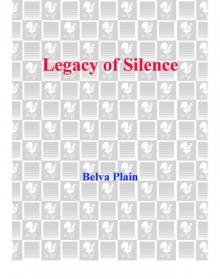 Legacy of Silence
Legacy of Silence Crossroads
Crossroads Promises
Promises After the Fire
After the Fire Tapestry
Tapestry Looking Back
Looking Back Heartwood
Heartwood The Carousel
The Carousel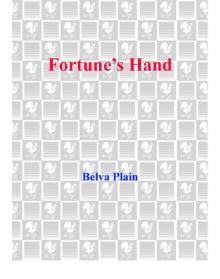 Fortune's Hand
Fortune's Hand Homecoming
Homecoming Random Winds
Random Winds Harvest
Harvest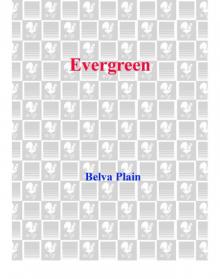 Evergreen
Evergreen Treasures
Treasures The Sight of the Stars
The Sight of the Stars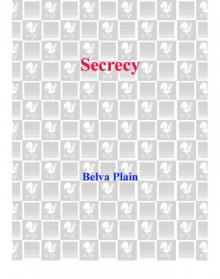 Secrecy
Secrecy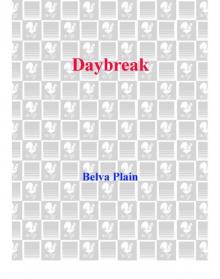 Daybreak
Daybreak Eden Burning
Eden Burning